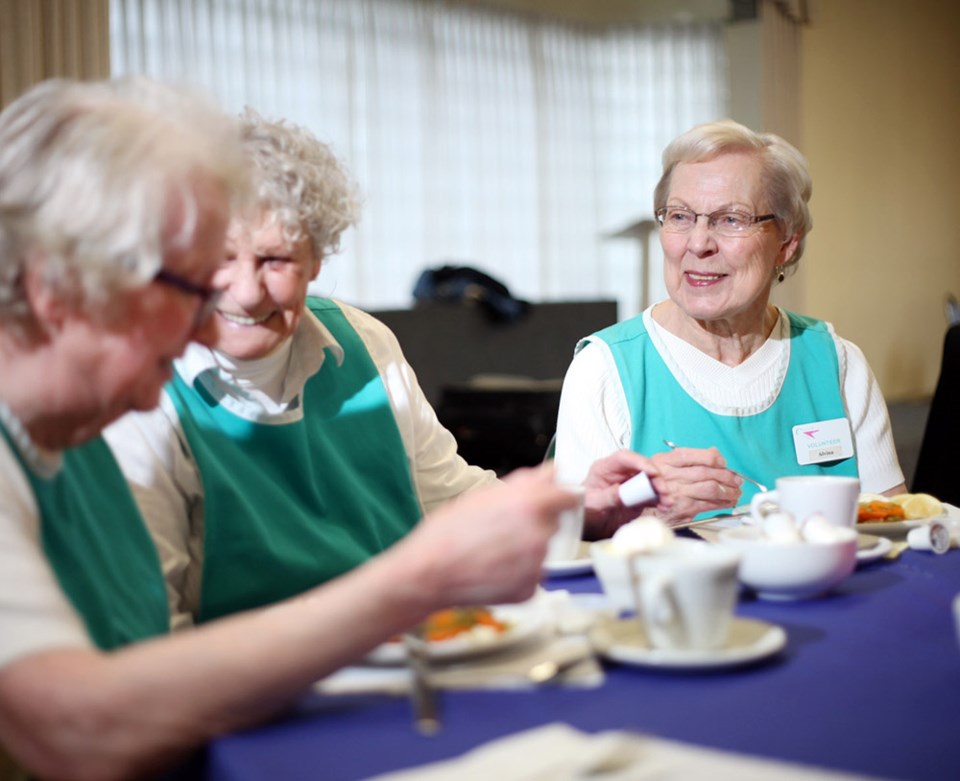The president of a provincewide umbrella group for seniors is calling on the federal government to do more to help the country’s elderly.
The recently proposed increases to the Guaranteed Income Supplement in the federal budget are “not nearly enough,” according to Lorraine Logan, president of the Council of Senior Citizens’ Organizations of B.C.
“You try to find a rental place for $700 anywhere that isn’t an SRO,” said Logan, referring to the single-room-occupancy hotels most famous in Vancouver’s Downtown Eastside. “It’s awful.”
A lot of older adults are going without certain things they may have been looking forward to in retirement, like travelling, Logan said.
“They go without is what they do. Many of our older adults are supporting children or grandchildren, a lot of children are moving home,” she said.
Many are ashamed to talk about it, she added, and some do odd jobs to make ends meet.
“How many older adults have you seen working at Walmart, (or) delivering newspapers?” she asked.
Logan called on the feds to continue examining pensions, particularly increases to the Canada Pension Plan. The 2016 federal budget only suggested the government would look into the issue.
Logan also wants the federal government to invest more in affordable housing. The budget included $208 million for the affordable housing innovation fund – roughly double what provinces were previously receiving for housing, but details on how exactly the money would be spent were scant.
“Where it’s going to land and what kind of conditions will be on it are really imperative,” Logan said.
Stephen D’Souza, executive director of Burnaby Community Services, welcomed the increase to the GIS and agreed that the budget was lacking in some areas.
“We were hoping to see a lot more around health care, and not just affordable housing, but appropriate housing,” he said, referring to seniors’ home care or assisted living facilities.
“There’s not enough available. There are huge wait-lists, (and) they are expensive when you do get in,” he said.
D’Souza explained that many seniors don’t even sign up for OAS or GIS because they may not know how, or they have trouble with the bureaucracy.
“They could be living off savings. They could be making a choice between medication and food and housing,” he said. “We do have a population of seniors who are homeless.”
Burnaby Community Services also runs the local Meals-On-Wheels program and works with Burnaby Seniors Outreach Services Society.
Seniors' highlights from the budget:
- Pensions: Average pensions are about $500 per month, according to Service Canada. The federal government noted workplace pensions in the private sector are falling, which increases the risk of older Canadians running out of money in their retirement. The federal government is launching a consultation on enhancing the Canadian Pension Plan in the coming months. No further details were provided.
- Old Age Security or OAS: The Liberals are undoing the previous government’s move, and reducing the eligible age for OAS from 67 to 65. That doesn’t mean seniors must retire at 65, but they can apply for OAS if they want to.
- Guaranteed Income Supplements or GIS: These are used to top up pensions, and the eligibility age for GIS is now 65 instead of 67. The federal government is raising GIS by a maximum of $947 per year – that’s roughly $78 per month – for low-income single seniors. The government estimates this will cost $670 million a year and will help 900,000 Canadian seniors. Single seniors with a yearly income of $4,600 or less qualify for the full $947 top up. That money is reduced gradually for seniors earning more than $4,600, and anyone over $8,400 per year does not qualify.
- Inflation: The federal government is considering a “seniors’ price index” that reflects cost-of-living changes for seniors to help ensure OAS and GIS payments keep up with real living costs.



